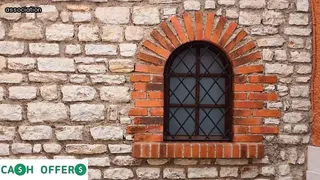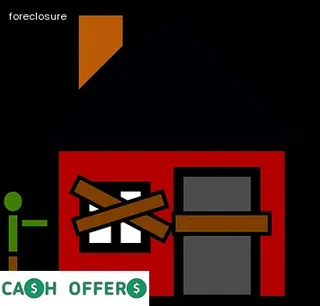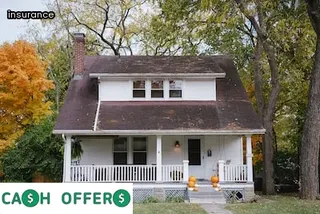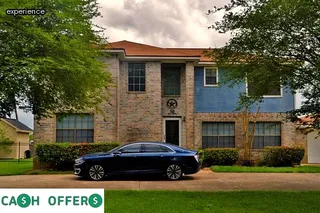Homeowners Associations (HOAs) and Condominium Owners Associations (COAs) play a critical role in the maintenance of residential properties. Understanding the assessments associated with these organizations is key to understanding how they operate.
An HOA assessment is an amount each homeowner or COA member must pay to cover expenses such as maintenance, landscaping, and other costs associated with the upkeep of the property. A COA assessment is similar but pertains specifically to condominiums and townhomes.
It covers many of the same expenses as an HOA assessment plus additional costs related to common areas such as hallways, elevators, and stairwells. While assessments are usually paid on a monthly or annual basis, it's important to understand that they can vary depending on where you live and what type of property you have.
Additionally, if assessments are not paid promptly, Maryland law states that HOAs and COAs may initiate foreclosure proceedings against delinquent owners. Understanding both assessments and their associated rules can help avoid this unpleasant situation.

When homeowners in Maryland fall behind on their Homeowner Association (HOA) dues, they may be subject to a variety of standard and special assessments. Standard assessments are typically used to cover the costs of regular HOA expenses, such as maintenance or repairs.
These assessments are usually calculated based on the size of the homeowner's property and assessed periodically throughout the year. Special assessments, on the other hand, are levied when extraordinary costs arise that cannot be covered through standard assessments.
These costs may include major repairs or improvements to common areas that require additional funding from homeowners. In some cases, special assessment funds can also be used for legal fees associated with lawsuits or other disputes between homeowners and their HOAs.
Both types of assessments can have serious consequences if left unpaid, including fines, liens and even foreclosure proceedings by an HOA. It is important for homeowners to understand these processes so they can avoid potential financial pitfalls related to delinquent HOA dues.
One of the most important aspects of understanding Maryland's delinquent HOA dues and foreclosure processes is knowing the various payment options available to homeowners. Although there are many different payment plans that can be offered, the most common option is for a homeowner to make a lump sum payment or pay in installments according to a pre-determined schedule.
Other possible payment options include direct bank transfers, credit cards, and debit cards. Homeowners can also enter into an agreement with their HOA to establish an escrow account for future payments, which can be beneficial when financial difficulties arise.
Additionally, some HOAs may consider other forms of payment such as bartering or community service hours. It is important to note that while these additional forms of payment may be accepted on a case-by-case basis, they are not usually considered valid alternatives by most HOAs in Maryland.
No matter which option is chosen, it is essential for homeowners to understand all the regulations and requirements associated with each form of payment before entering into any agreements with their HOA.

Creating an effective collection policy for assessments is critical in ensuring successful operation of a Homeowner's Association (HOA). In Maryland, HOA dues are considered a lien on the property, and if delinquent, can lead to foreclosure.
To avoid this, it is important that HOA boards have clear policies and procedures in place to collect these dues. This should include timely invoicing and payment reminders to members as well as clearly outlining what actions will be taken for nonpayment or late payments.
Furthermore, an effective collection policy should also provide options for members who are struggling financially or facing other hardships so they can stay current with their dues without facing long-term financial damage. By having an effective collection policy in place for assessments, HOAs are able to ensure their financial security without unduly burdening any of its members.
Offering payment incentives for assessments is a great way to encourage people to keep up with their delinquent HOA dues. By offering small discounts or other forms of compensation, associations can show homeowners that they are serious about collecting the necessary fees.
This helps foster an environment of trust between the association and its members, which is important when dealing with delinquent payments and foreclosure processes. Additionally, it allows associations to be more flexible in working with late payers, potentially allowing them to avoid having to take legal action while still getting the money they are owed.
Furthermore, these incentives can serve as an incentive for people to stay current on their dues, helping to prevent delinquency in the first place. Ultimately, payment incentives offer a great solution for HOAs looking to ensure their fiscal security without having to resort to drastic measures.

When homeowners in Maryland miss their Homeowner Association (HOA) dues, they often face the possibility of foreclosure. To avoid this outcome, it is important to understand the process and craft late notice strategies for delinquent payments.
Being aware of the various legal notices sent by the HOA can help homeowners anticipate potential consequences and plan how to address delinquency. Additionally, understanding state-level regulations regarding foreclosure processes can provide insight on how to negotiate a settlement or repayment plan.
It is also possible that there are local ordinances or laws in place that may be beneficial to homeowners struggling with delinquent payments. Finally, staying informed of HOA deadlines and taking advantage of any resources available to them can be key in helping homeowners navigate the foreclosure process and retain their homes.
Adhering to debt collection and licensing regulations is a very important part of understanding Maryland's delinquent HOA dues and foreclosure processes. It is essential that all home owners understand the rules and regulations that govern the actions of their homeowners association (HOA) when it comes to debt collection and foreclosure in the state of Maryland.
HOA members should be aware that they have certain rights when it comes to debt collection, as well as any fees associated with foreclosing on a property. Additionally, HOAs must adhere to specific licensing requirements in order to legally collect debts owed by members.
Furthermore, HOAs must be knowledgeable of the laws related to foreclosure proceedings, including any limits or restrictions on how long they can pursue a member for unpaid dues before taking legal action. Understanding these regulations and following them closely are critical steps for any homeowner looking to remain in compliance with Maryland's delinquent HOA dues and foreclosure processes.

If a homeowner association (HOA) member in Maryland fails to pay their assessments, the HOA can take action to collect the debt. In some cases, they may choose to impose late fees and interest charges to encourage payment from delinquent members.
If those efforts fail, however, the HOA can pursue more serious remedies such as filing a lien against the property of the delinquent member or foreclosing on their home. A lien is a legal claim that allows an organization or individual to seize and sell a person's property if they do not repay their debt.
The filing of such a lien must be done through court proceedings. If the delinquent member does not pay off the debt after being granted a lien, then the HOA has the option of initiating foreclosure proceedings which could result in losing ownership of their home.
Additionally, HOAs may also be able to garnish wages or bank accounts if they have gone through all other collection methods first and still have not been able to satisfy the assessment debt. It is important for homeowners in Maryland who are facing delinquent assessment fees to understand their rights and options when it comes to enforcing payment so that they can make informed decisions about how best to proceed.
When delinquent HOA dues in Maryland have gone unpaid for an extended period of time, it may become necessary to pursue a civil lawsuit in order to obtain a personal judgment. The first step is typically to send the homeowner a demand letter which will outline the amount owed and provide a deadline for payment.
If this fails, the next step is to file a complaint with the court. As part of the filing process, you will also need to complete an affidavit of debt that verifies the amount due and any interest that has accrued.
You can then serve the homeowner with the summons and complaint, giving them an opportunity to answer the complaint within 30 days or else face default judgment. Once you obtain a judgment, you can then pursue additional remedies such as garnishment or foreclosure proceedings.
It is important to understand all relevant laws and regulations before taking action since each state has its own specific requirements for pursuing legal action against delinquent homeowners.

When it comes to effectively structuring payment plans with delinquent clients, there are several key considerations for Maryland homeowners association (HOA) managers to keep in mind. To begin, understanding the state's foreclosure process is essential.
In Maryland, HOAs can foreclose on a property after just 30 days of delinquency. This can be an intimidating prospect for delinquent clients and should be approached with empathy and clear communication.
Additionally, being familiar with the laws surrounding HOA fees and liens will help managers efficiently negotiate a payment plan that works for both parties. It is important to remain flexible while also communicating expectations clearly so that all involved parties understand their rights and obligations under the terms of the agreement.
Finally, establishing a reasonable timeline for repayment that takes into account the financial situation of the client is critical in order to ensure successful completion of the payment plan.
Financial management strategies when dealing with HOAs and COAs are essential for Maryland residents to understand. From delinquent HOA dues to foreclosure processes, it's important to know how to handle a variety of situations.
Maryland property owners should ensure they are aware of their rights, responsibilities and consequences if they fall behind on payments. It's also beneficial to be familiar with the applicable laws and regulations related to the homeowners association.
Additionally, having a thorough knowledge of the payment options available can help avoid financial strain. Researching loan modification programs, debt consolidation services and other payment assistance programs can give homeowners more control in these situations.
Being proactive about understanding the process for dealing with delinquent dues or foreclosures is key in order to remain compliant with laws, avoid legal trouble and protect financial stability.

When faced with delinquent HOA or COA dues, it is important to be aware of the possible implications on auto insurance coverage. Maryland homeowners must understand that if they fall behind in payment for their HOA or COA fees, their insurance company may not be able to pay out a claim in the event of an accident.
In addition, if a homeowner has been delinquent in their payments for more than 90 days, they can face foreclosure proceedings from their homeowners association. If this is the case, it is important to take into account any potential changes in auto insurance costs due to the property being foreclosed upon.
Furthermore, if a homeowner has let their HOA or COA fees become severely delinquent and faces foreclosure as a result, they should consider contacting their insurer to determine how to best proceed with regards to their auto policy coverage. Understanding these potential impacts on auto insurance can help Maryland homeowners make informed decisions when paying HOA/COA fees and avoid potential issues down the road.
Understanding the impact of homeowners insurance on Homeowners Association (HOA) and Condominium Owners Association (COA) fees is an important part of navigating Maryland's delinquent HOA dues and foreclosure processes. Having adequate insurance coverage can help protect a homeowner from unexpected costs or liabilities that may arise due to damages or other occurrences, and in some cases, can also help to reduce the amount of HOA or COA fees that are owed.
Although it may not be required for all HOAs and COAs in Maryland, obtaining the correct type of insurance coverage can result in significant savings for a homeowner over time. It is important to understand what types of coverage are available so that each individual's needs are better met.
Additionally, knowing the coverage limits of any existing policies is essential when dealing with delinquent HOA dues and foreclosure processes. Understanding these details can help ensure that any potential financial losses incurred due to damages or other occurrences are minimized as much as possible.

Retirement planning can be a daunting task, especially when you need to factor in all of your costs. Homeowners Associations (HOA) and Condominium Owners Associations (COA) fees are often overlooked but can be a huge burden, especially if they become delinquent.
Understanding Maryland's foreclosure processes in terms of HOA/COA dues is key to proper retirement planning. There are different rules and regulations depending on the governing documents that each association has, so it's important to read through them carefully and research any questions you may have ahead of time.
In some cases, an HOA/COA can foreclose on a property if the dues remain unpaid for an extended period of time – this could significantly impact your retirement plans. It's also important to note that while some HOAs in Maryland may offer payment plans or other options for those who cannot pay their fees upfront, these arrangements must be approved by the board before they can be pursued.
When making retirement plans it is essential to budget for all potential expenses, including HOA/COA fees, to ensure that your retirement savings will last as long as possible.
College planning and managing fees owed to Homeowners Associations (HOAs) or Condominium Owner Associations (COAs) can be a daunting task. Understanding Maryland's delinquent HOA dues and foreclosure processes is essential for individuals who are subject to such fees.
It is important to explore the lien foreclosures that would result from unpaid dues, as well as assess any mortgage implications that may arise due to such liens. If an individual finds themselves in such a situation, it is recommended they seek legal advice to properly handle the foreclosure process.
In Maryland, unpaid dues may lead to a nonjudicial foreclosure process, though alternative solutions can be explored in order to avoid such measures. Individuals should research their rights and obligations under the local laws in order to find the best solution for handling delinquent HOA dues in Maryland.
If you don’t pay Homeowners Association (HOA) fees in Maryland, the HOA can take legal action to collect the fees due. The consequences may include a lien on your property and even foreclosure.
Understanding Maryland's delinquent HOA dues and foreclosure processes is important for homeowners to comprehend the potential implications of not paying their HOA fees. In Maryland, an HOA has the right to impose a lien on any property if dues are more than 30 days past due.
This lien gives the HOA a legal claim on the property until the dues are paid in full or other arrangements are made with the homeowner. If payment is not received, the HOA can then pursue foreclosure proceedings against the owner.
Foreclosure in Maryland follows a specific process that must be adhered to by law. The first step is for the HOA to provide written notice that includes an explanation of why foreclosure proceedings have been initiated and provides information about how to avoid foreclosure, including payment amounts and deadlines for making payments or arranging payment plans.
Homeowners should familiarize themselves with this process so they can take proactive steps if they find themselves unable to pay their HOA dues in order to avoid losing their home altogether.

Yes, Maryland is a super lien state and as such, it is important for homeowners to understand the delinquency process for Homeowners Association (HOA) dues and the foreclosure processes associated with it. Maryland law states that HOAs have a first priority lien on the property for unpaid assessments.
This means that failure to pay HOA dues can lead to the initiation of a foreclosure action against the homeowner if delinquency persists beyond a set period of time. In order to protect their rights, homeowners should be familiar with all related laws regarding these processes and be aware of any potential penalties they may face if they fail to make payments on time.
Additionally, understanding how an HOA's super lien status may affect one's credit score should also be taken into consideration when attempting to resolve delinquent payments or avoid foreclosure.
In Maryland, HOAs can be dissolved in certain circumstances, such as when the majority of the homeowners within a development vote to dissolve it. Homeowners in Maryland may also initiate dissolution if they are unable to collect delinquent HOA dues or maintain the financial stability of the association.
It's important to understand that dissolving an HOA will not release homeowners from their obligations and any unpaid fees will still have to be paid. The foreclosure process is usually used when owners do not pay their dues and can result in a lien being placed on the property.
Understanding Maryland's delinquent HOA dues and foreclosure processes is key if homeowners wish to avoid these issues and protect their financial interests.
The regulation of Homeowner Associations (HOAs) in Maryland is overseen by the Maryland Department of Labor, Licensing and Regulation, Division of Real Estate. This division ensures that HOAs in Maryland operate within legal and ethical standards as mandated by state law.
For instance, the division oversees compliance with Maryland's Condominium Act and Homeowners Association Act which govern all aspects of HOA operations. The division also works to ensure fair collection practices for delinquent HOA dues and that foreclosure processes are handled properly.
In the event of a dispute, the division can provide mediation services to help resolve issues between an HOA and its members. There are also several organizations throughout the state where homeowners can receive assistance or advice related to understanding Maryland's laws and regulations concerning HOAs.
A: In Maryland, insurance companies are prohibited from issuing policies on properties with outstanding Homeowners Association dues. If delinquency continues, the Homeowners Association can initiate a Foreclosure Sale to collect the unpaid dues plus interest at a rate of 5% per annum.
A: The Board of Directors in Maryland may take a variety of actions to address delinquent Homeowners Association dues, including foreclosing on the property and charging interest at a rate set by the state.

A: In Maryland, a lien for delinquent HOA dues must be paid prior to any foreclosure sale. The rate of interest applicable to the lien will generally be at the rate stated in the HOA's governing documents.
A: If the delinquent dues remain unpaid, the Homeowners Association in Maryland may pursue legal action such as filing a contract action seeking monetary judgment against the homeowner. The court may enter a judgment with interest at the rate of 6% per annum, which shall be calculated from the date of default on the Homeowners Association's lien. The lien has priority over any first mortgage lien or deed of trust.
A: In Maryland, if a homeowner does not pay their Homeowners Association dues, the association has the legal right to file a lien against their home. Once a lien is filed, the association can take the homeowner to court in order to recover the unpaid dues plus any associated costs, including interest at a rate of 6% per annum.

A: A Homeowners Association in Howard County, Maryland can pursue a lien against the property of a delinquent homeowner, which will be recorded in the deed of trust. The lien may also be assigned to a creditor or lender who holds an existing loan on the property. The rate of interest that is applied varies depending on the state law and can range from 6-12%.
A: A Homeowners Association in Maryland can pursue a lien against an owner's property for unpaid assessments and any applicable attorney's fees. The rate of interest that may be applied is set by statute at the rate of 8% per annum.
A: A Homeowners Association in Maryland may file a claim against the Lenders who hold Deeds of Trust or other forms of Deed. The rate of interest that is typically applied varies depending on the laws and regulations set by the LLC that owns the HOA.

A: CC&Rs are binding legal agreements between homeowners and the Homeowners Association (HOA). In Maryland, the HOA has the right to impose late fees and interest on delinquent dues. It can also pursue legal action in order to recover past due amounts.
A: Homeowners Associations in Maryland can use consumer technology to track delinquent dues, such as tracking software or newsletters. Statutes for the state specify that the rate of interest applied to delinquent dues is the legal rate of interest specified by law, currently 6%.
A: Homeowners in Maryland who are delinquent on their HOA dues are subject to a lien against their real estate. The lien is treated as a priority debt under the bankruptcy code, so it will not be discharged even if all other debts are eliminated. Homeowners should seek advice from counsel experienced in bankruptcy law to understand the implications of filing for bankruptcy.

A: Homeowners Associations in Maryland may take legal action to recover delinquent dues through civil suits or by filing a lien against the property. The rate of interest applied can vary depending on the terms and conditions of the particular HOA agreement, as well as local laws.
A: Bankers in Maryland must follow the bylaws set in place for delinquent Homeowners Association dues, which include regulations that any interest earned on delinquent funds must be paid to the Homeowners Association at a rate of 5% per annum.